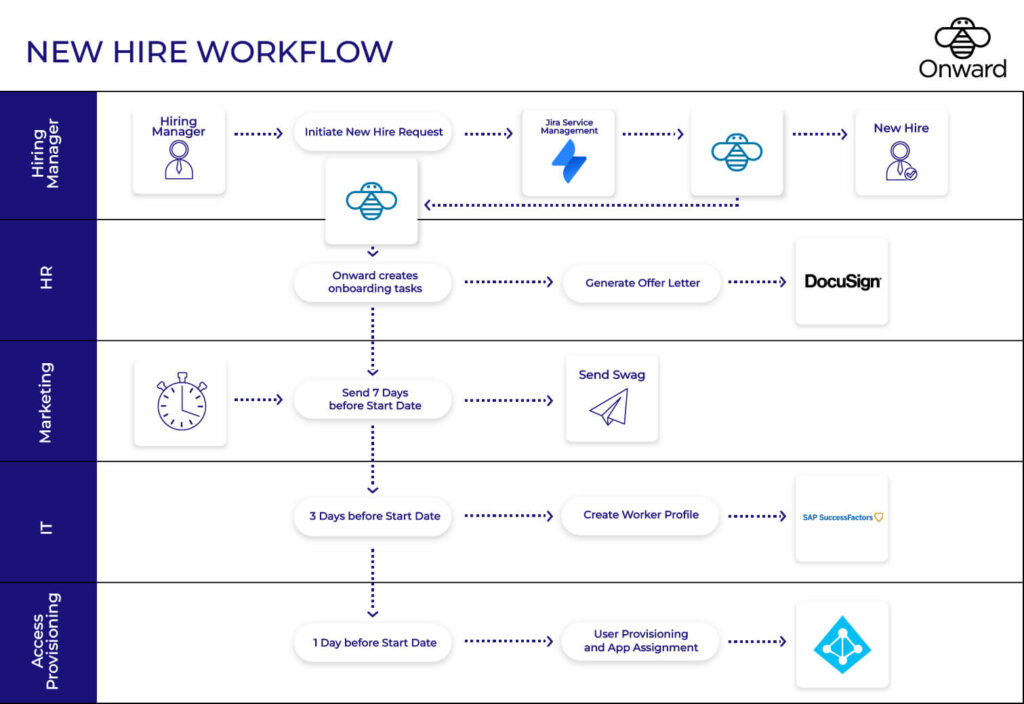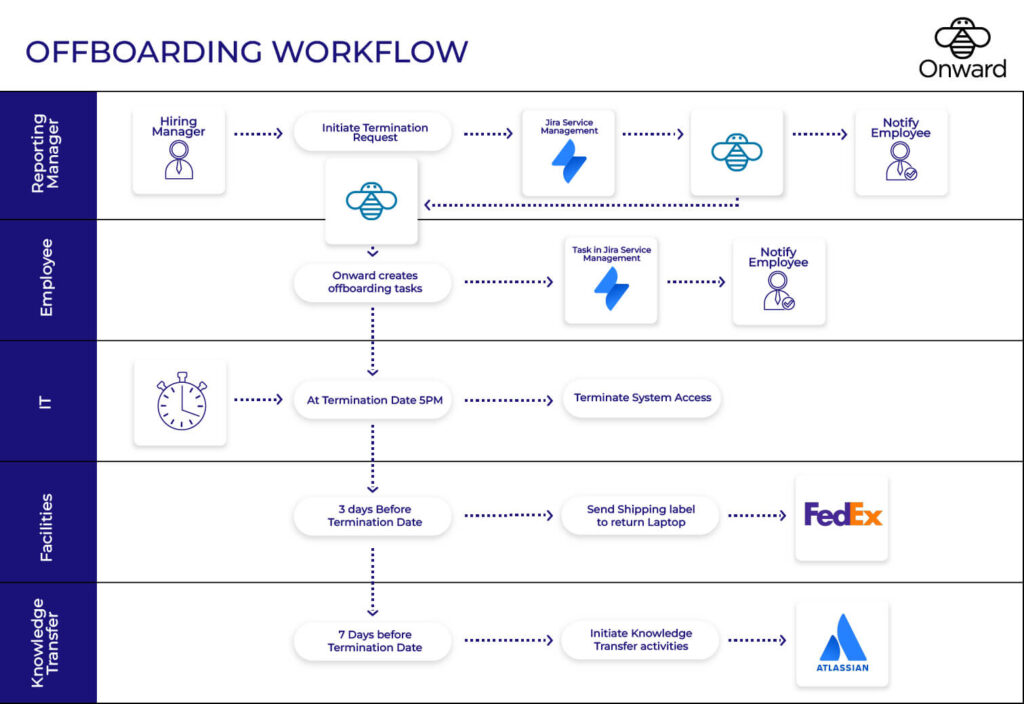Every workflow is a sequence of tasks, often dependent on human input or time-based events. In HR workflows, such as employee onboarding or offboarding, these tasks often have specific timeframes and conditions to meet for SLA compliance. In this blog post, we’ll explore how to configure and automate time-based HR tasks using Jira Service Management (JSM).
Consider the process of employee offboarding:
Here are the typical SLAs and expectations that are set when implementing the above steps.
Albeit these conditions are just samples, but you get the point.


I’m not done yet. You have all the tasks created, set the SLAs, automated the notification and reminders. However as I mentioned at the start, these workflows are not linear. Let me explain why.
Now imagine if you are in this position, do you create duplicate tasks? how can we build the system that is flexible enough to manage the changes and curve balls? Most importantly, avoiding customizations so that you don’t incur a lot of technical debt.
OnRamp provides a solution for building flexible HR workflows in JSM:
Setting Up Tasks: Tasks are configured within JSM, representing each step of the workflow.

Configure Task Conditions: Each task can have specific conditions, including time-based, relative, or matching conditions on other issue fields.

In this demo, we showcase the integration of Jira Service Management with SAP SuccessFactors, DocuSign, and other systems to automate HR workflows with time based conditions.
By leveraging OnRamp within Jira Service Management, organizations can optimize HR processes, ensuring efficiency and compliance while adapting to changing circumstances seamlessly.
Related Blogs
